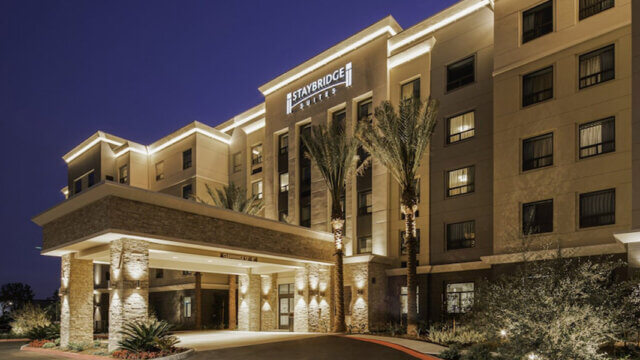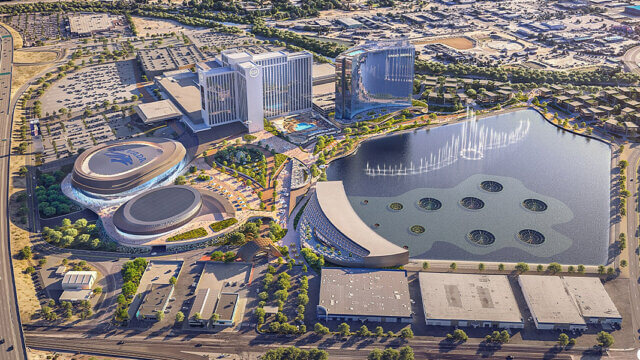By Joe Bushey
Embarking on a new hotel development is no small task. Developers and investors must have a clear vision and the fortitude to see the project through to completion. Additionally, the construction of a new hotel represents a significant investment. Protecting and managing that investment is crucial to the success of a project. Risk management requires thorough due diligence and understanding of where the hotel will be built. Conducting early site reviews and crafting solutions for potential challenges could be the difference between a successful hotel opening and a project that never gets off the ground.
Recognizing the value of detailed site considerations, what should hotel developers and investors evaluate when exploring sites for a new project? Let’s take a closer look at the role of due diligence and the most common site issues for new hotel development.
Due diligence makes a difference
Due diligence is a crucial early step in any hotel project and enables developers to make an informed go-no-go decision about a hotel project.
At its foundational level, due diligence is a review of an existing site to identify significant conditions that will affect the feasibility and cost of developing that property. The findings can add confidence to move forward or at least identify areas of concern and prevent headaches later by avoiding a site if it doesn’t meet the financial criteria for the project.
This process is best captured in three phases:
- Phase One: Conduct a preliminary site assessment that includes historical research and collect any existing information about a site. Resources include historical records, insurance documentation and maps and photos of the site and surrounding area.
- Phase Two: An on-site walk-around survey to document existing conditions through images and field notes. That documentation typically focuses on visible site conditions to get a better understanding of potential problems.
- Phase Three: Prepare a detailed report that outlines what information has been gathered about a site and identifies potential items of concern as well as provides general guidance on what actions will be required for the project to move forward as planned.
Ultimately, the goal of a due diligence process is to ensure that the development team is best positioned to make an informed decision.
Top site considerations
Fully understanding site conditions is a key component of that decision calculus. Three broad areas of consideration are paramount for new hotel development: topography, infrastructure and stormwater drainage.
A site’s topography will dictate what’s possible to build in that location. Depending on topographic characteristics, a project’s cost can balloon quickly. That’s why evaluating the topography early is so important.
The topography could also impact the infrastructure needed at a site and how utilities will be designed to support that site. An infrastructure review takes two primary forms. First, how close is existing infrastructure—including sewers, water lines, electricity, roadways, etc.—to the site and what’s the estimated degree of difficulty to extend that infrastructure. Second, what type of infrastructure and underground utilities will be needed at the site to support the new hotel.
A third critical site consideration, again connected to topography, is stormwater drainage. As part of a due diligence review, evaluate current drainage at the site and anticipate potential stormwater issues.
Top local considerations
All real estate is local, including decisions about new hotel developments and where those projects will be sited. Of course, specific regulatory considerations vary by locality. It’s important to have a keen understanding of local policies and a strong working relationship with the officials who enforce those policies. Hotel developers often rely on engineers, architects and others to assist with this.
Generally speaking, zoning and parking are the two most common considerations when evaluating the local regulatory environment.
Ensuring the proper zoning classification for a site is foundational. Whether a new hotel can be built by right under existing zoning or rezoning is necessary, so pay particular attention to zoning details. From the size of a structure to where it can sit on a piece of land, there are myriad zoning considerations that impact the design and construction of a new hotel.
Parking requirements are another local regulatory item often tied to zoning classifications. Understand the specific parking requirements for a site because those rules will impact the number of rooms in a hotel and how large a site will need to be to accommodate the structure, parking and other infrastructure.
Site consideration checklist
Whether a developer already owns a parcel of land or has it under contract, site considerations are crucial. For example, the site of the Hyatt Place Virginia Beach Oceanfront hotel was already owned by the hotel’s developer, Suburban Capital. Given the parcel’s size and oceanfront location, a clear understanding of setback requirements was vital in the 13-story building’s design. Additionally, there was enough of a grade differential between the roadway in front of the hotel and the rear of the building that the team had to craft site designs to ensure the front and rear grades matched. These are just two examples of how early due diligence and site planning can help ensure a project’s successful completion.
Carefully evaluating site conditions for a new hotel early in the development process can save money and avoid unexpected problems throughout the life of a project.
The following areas should be the top priorities when considering a site:
- Conduct a thorough and professional due diligence review
- Review site topography
- Identify existing and needed infrastructure for the site
- Consider current drainage and stormwater needed
- Evaluate site utility needs
- Review current zoning designation
- Review parking requirements
- Compile a due diligence report on all site considerations
This eight-point checklist will help hotel developers make an informed decision about the best site for their next hotel project.
Joe Bushey, PE, LEED AP is a regional site development and infrastructure team leader with TRC Companies, a global firm providing consulting, construction, engineering and management services.
This is a contributed piece to Hotel Business, authored by an industry professional. The thoughts expressed are the perspective of the bylined individual.




